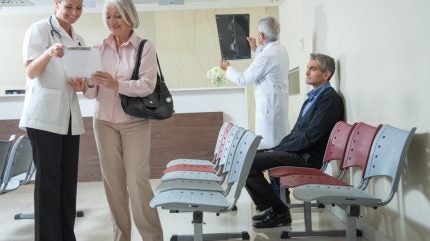
In a complex developmental and regulatory landscape influenced by bureaucracy and contractual timelines, it is more important than ever to take the right path to development for promising therapies.
Two experts spoke on the importance of ensuring feasibility across clinical trial site development and patient recruitment at the 13th Annual Clinical Trials in Oncology East Coast 2024 conference, being held 9 – 10 July in Burlington, Massachusetts.

Discover B2B Marketing That Performs
Combine business intelligence and editorial excellence to reach engaged professionals across 36 leading media platforms.
When working with CROs and pharma sponsors, the success of a site performance relies on a thorough feasibility process, said Dr. Claudia Hesselmann, founder and CEO of the German early phase trial expert ARENSIA Exploratory Medicine. Feasibility means conducting the necessary due diligence to determine where the target patient populations are available. This is especially applicable in early phase studies for which progression and protocol development are contingent on efficiently finding participants, she added.
Also integral to expediting the clinical lifecycle is the effective use of recruitment resources, which is especially important when the patient population in question is harder to recruit, said Steve Dunlap, senior director of Oncology Global Clinical Development at GSK.
Moreover, feasibility extends beyond patient recruitment and plays a key role in effective site development.
Hesselmann also noted that site feasibility can also change in the blink of an eye with a single substitution of a player in the site team or the modification of research infrastructure. “If a single person like a study coordinator is changed, the performance from previous studies is irrelevant for you. You need to understand the team behind the study and what resources they have,” she said. Direct communication and involvement with the sponsor, particularly in the early stages of feasibility, can also significantly enhance a site’s performance, Hesselmann added.

US Tariffs are shifting - will you react or anticipate?
Don’t let policy changes catch you off guard. Stay proactive with real-time data and expert analysis.
By GlobalDataSponsors also need to evaluate more than the site staff and assess whether the site can support the study, and the necessary technology and equipment that goes in hand with conducting a clinical trial, Dunlap explained. Ultimately, the key to site feasibility is open communication between the sponsor, site staff, CRO, and physicians to ensure smooth operation and navigation of the trial at hand, he elaborated.



